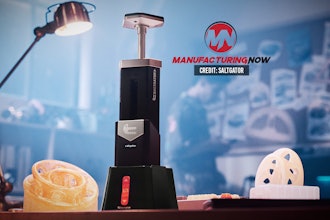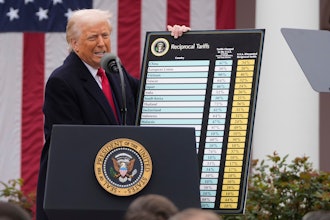
This article originally appeared in the August print issue of IMPO.
Before partnering with a contract manufacturer (CM) to continue producing your legacy products, you must ensure the contract manufacturer suits all of your manufacturing needs.
Contract manufacturing companies are not all the same, and you shouldn’t partner with one for a quick solution to your OEM company’s needs. The challenge is to avoid overlooking critical factors concerning outsourced manufacturing that directly impact your OEM company’s bottom line.
The only way to avoid harmful oversights that tend to waste your valuable resources is to keep a comprehensive checklist of questions in hand, and to interview each contract manufacturer your OEM company is considering.
To successfully bring your legacy product to market, you want to ensure you and the contract manufacturer are working together to find the most cost-effective and efficient solutions.
The following 11 questions (and answers) act as your official guide to partnering with the right contract manufacturer:
1. Is the contract manufacturer operating with an open book?
When interviewing contract manufacturing companies, they should willingly offer everything you need, upfront.
Upon request, the contract manufacturer should quickly and confidently provide you with information regarding their production processes, materials cost, direct labor costs, overhead costs and profits.
2. Does the contract manufacturer have a quality program?
Be sure the contract manufacturer you’re considering has adopted quality standards – such as the ISO 9001:2008 – which provide guidelines to ensure the contract manufacturer’s products and services are consistently meeting customer requirements.
Ask the contract manufacturer to show you records demonstrating their program’s ability to provide accurate documentation, high-level reports and detailed test data.
3. Is the contract manufacturer’s facility as organized as your plant?
The organization of a contract manufacturer’s facility speaks volumes about how seriously they take quality control.
A clean, well-lit and well-organized facility also exemplifies the contract manufacturer’s capacity to complete work in a safe, professional manner. With outsourced manufacturing, you are paying for process improvement, so you deserve to physically see the facility’s quality control measures in place.
4. Do you know if the contract manufacturer is in a sound financial situation?
When your OEM company partners with a contract manufacturer, you want that partnership to last for many years. That’s why you need to ensure the contract manufacturer’s financial stability.
Conduct an evaluation of the contract manufacturer’s financial standing by getting a bank reference check, checking for UCC fillings or attaining their Dun & Bradstreet report.
Don’t shy away from asking some hard questions, such as if they reinvest profits into new equipment and employee training. Also, you want your contract manufacturer to be diversified in many industries, in case one sector does poorly.
5. How vertical is the contract manufacturer?
Evaluate all of the contract manufacturer’s in-house processes. Do they have in-house engineering? Do they provide final packaging and logistics? Do they offer VMI (Vendor Managed Inventory) services?
Look at all of your business needs and ask if the contract manufacturing companies you are considering provide the services that meet your needs, while also tying manufacturing processes together in a cohesive, streamlined manner.
6. Is the contract manufacturer’s corporate culture thriving?
Be sure to ask plenty of questions about the corporate culture of the contract manufacturer you are considering.
During your evaluation, do you feel as though their employee relations are comparable to those of your OEM company? Are their employees engaged in their work? A CM facility that focuses on employee happiness and growth helps to develop long tenures.
7. Is the contract manufacturer the right size for your business?
If you’re a small- to medium-sized OEM company, you don’t need to partner with a big-time contract manufacturer.
Sometimes larger contract manufacturing companies have difficulties servicing smaller accounts. When you don’t get what you need, when you need it, this comes at a great cost to your company.
8. Does the contract manufacturer have processes to protect your intellectual property?
Your intellectual property is an extremely valuable asset, and it must be protected from possible infringers. Inquire about the contract manufacturer’s data systems and what they do to ensure 100 percent security of your sensitive IP information.
9. Does the contract manufacturer have regular Lean manufacturing events on the production floor and in the front office?
When it comes to your contract manufacturing partnership, you need proof they are not only dedicated to meeting your requirements, but that they are working towards continuous improvement.
If your contract manufacturer is holding regular Kaizen events for both the workers on the factory floor and the managers in the front office, you are ensured the contract manufacturer is working on process improvement through proven Lean manufacturing methodologies.
10. Does the contract manufacturer dedicate a value stream manager to handle your account?
Your contract manufacturer should provide you with a dedicated point of contact (other than the owner or a salesperson), to show they are providing you with the best service.
A single point of contact gives you a go-to account manager you may contact any time you have questions or concerns, which helps to facilitate answers more quickly.
11. Does the contract manufacturer offer historical program renewals with other clients?
You want to ask to see a contract manufacturer’s past program renewals to ascertain if there is a pattern of increased yearly pricing when it comes to manufacturing materials and labor.
If you notice prices increasing year after year, inquire about the cause. Ask to interview the contract manufacturer’s purchasing department to determine if the purchasing of materials is being managed strategically or tactically.
There are a variety of aspects to outsourced manufacturing that have the potential to greatly affect your OEM company’s bottom line — both positively and (if they’re not providing all the services you need) negatively.
That’s why you need to carefully consider all of the important factors dictating which contract manufacturer is the right fit for your business. Take the time to deliberate on every critical aspect of your partnership with a contract manufacturer.
Due diligence is the only way to solidify a solid relationship with the best chance for long-term success. A contract manufacturer that provides you with total transparency of their processes, programs and financial information sets you up to make intelligent business decisions that only stand to strengthen your company.
Craig Zoberis is the founder and president of Fusion OEM, a contract manufacturer of capital equipment. Call 630-323-4115 or visit www.FusionOEM.com.



















